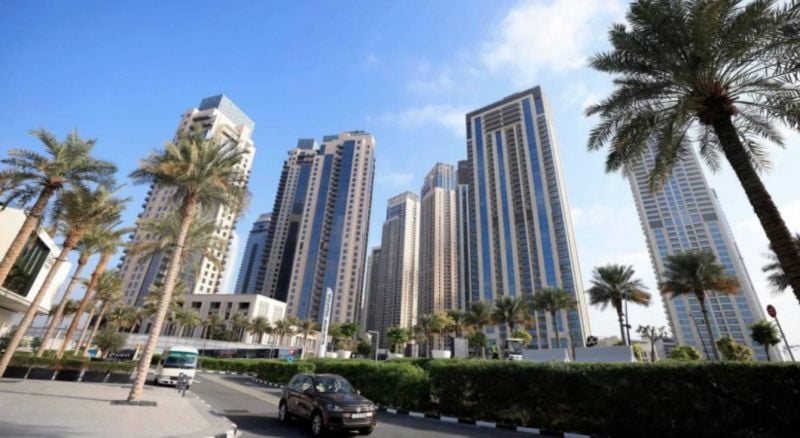
A street in Dubai. (Credit: AFP archives)
In Dubai, driving under the age of 18, exceeding the speed limit, running a red light, driving a quad bike on a tarmac road, or participating in unauthorized car races will now come with a heftier price. Offenders will face substantial fines .
In a recent decree, the Emir of Dubai, Mohammad bin Rachid Al-Maktoum, introduced amendments to a 2015 text that focuses on traffic regulation and organization. As part of these changes, the Emirate of Dubai has implemented fines ranging from 10,000 to 100,000 dirhams (approximately $2,700 to $27,000), which may also result in the expulsion of foreign motorists found guilty of the aforementioned violations.
The introduction of the new rules aims to reduce dangerous driving behaviors.
In 2022, the police reported that 32,000 drivers were caught running red lights in the UAE’s economic capital, averaging 90 violations per day. Previously, the imposed fine for such offenses was 1,000 dirhams (approximately $272).
However, as of Thursday, offenders will face significantly higher penalties. The fine for running a red light has been increased to 50 times its previous amount, and in addition, vehicle impoundment will now be enforced. If an offender repeats the offense within a year, the cost of releasing the impounded vehicle will be doubled.
In addition to the aforementioned measures, the new regulations also specify that non-UAE nationals could face expulsion if they run a red light while operating a heavy goods vehicle.
The aim of these stringent regulations, promoted by the police under the catch phrase “Your safety, our happiness,” is to foster a safer road environment and reduce the fatality rate on Dubai’s roads.
This approach is reminiscent of Singapore’s system.
The UAE has recently granted a national license to WeRide, a Chinese autonomous car company, allowing it to operate and conduct vehicle tests on the country’s roads.
WeRide shared that Dubai even set a target of having 25 percent of its vehicles autonomous by 2030.
However, the effectiveness and, most importantly, the safety of autonomous cars are still in question, given the numerous failures observed during testing in various regions, from the United States to China, Europe and now the Gulf.
Considering the upcoming COP28 event scheduled to be held in Dubai in November, could this development serve as an opportunity to explore alternative modes of transportation?
The UAE has been making substantial investments in its rail network for a considerable period. In March, Etihad Rail announced the completion of the 900-kilometer Emirati network, successfully connecting all seven emirates of the country. While the rail network is currently operational for the transportation of goods, no specific date has been announced for the commencement of passenger services.
It appears that Dubai is not yet prepared to fully embrace green transportation alternatives.
This article was originally published in French in L'Orient-Le Jour. Translation by Sahar Ghoussoub.